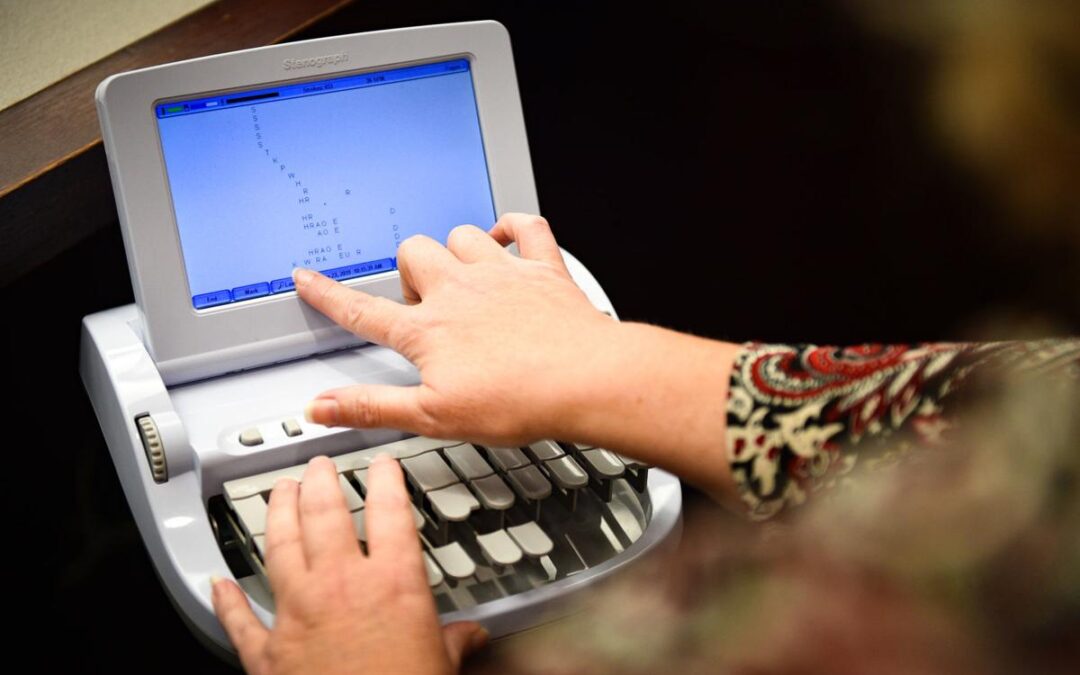In the intricate and demanding world of legal proceedings, where every word can significantly impact the outcome of a case, precision is not just valuable—it is essential. Court reporters are the guardians of this precision, capturing every word spoken during legal proceedings.
This role ensures that an accurate and complete record is maintained for posterity. These verbatim transcripts are indispensable, as they serve as the official record for appeals, provide clarity in case of disputes, and are sometimes used in academic research to understand legal practices. Professionals engaged in West Palm Beach Court Reporting demonstrate how integral the field remains within the justice system, adeptly preserving the truth across diverse settings, whether in the hustle of a courtroom or the calm of a remote deposition.
Types of Court Reporting
Stenography: The Traditional Method
Stenography is a crucial aspect of court reporting, requiring a stenotype machine to type shorthand versions of spoken words at speeds of over 200 words per minute. This method requires years of practice and linguistic mastery.
Electronic Reporting: The Rise of Digital Audio Capturing
Electronic reporting in courtrooms is gaining popularity due to technological advancements. Digital audio equipment captures spoken words and emotions. It transcribes them to text, making it affordable and accessible for many courts, especially in budget-constrained areas or where traditional stenographers are unavailable.
Voice Writing: Using Speech Recognition Software
Voice writing, a speech recognition software method, involves a court reporter using a mask to re-speak events and transcribe them into text. This technique offers speed and accessibility, mainly as speech recognition accuracy improves, showcasing modern innovations in traditional practice.
Skills and Qualities of a Successful Court Reporter
A Successful court reporter possesses a blend of specialized skills that set them apart as professionals. Proficiency in grammar and a keen eye for detail are non-negotiable, as every transcript must be grammatically perfect and factually accurate. Equally important is their technological savvy, allowing them to navigate the latest software and equipment that complement their reporting tasks. Beyond technical skills, the ability to remain impartial and attentive is crucial. With each proceeding being unique and often sensitive, maintaining objectivity ensures that the records are an accurate and unbiased reflection of events.
Technological Advances in Court Reporting
The advent of cutting-edge technology marks a fascinating chapter in the evolution of court reporting. Today’s court reporters increasingly use real-time transcription software, which provides instantaneous transcripts that can be displayed and reviewed within seconds of being spoken. This feature not only optimizes the workflow during trials but also enhances the accessibility of information, especially for legal professionals and individuals with hearing impairments. The transformative influence of AI in Legal Technology is undeniable. Artificial Intelligence aids in improving the accuracy of transcription, reducing human errors, expediting the review process, and making the entire system more efficient.
Choosing the Right Court Reporter
Finding the right court reporter requires careful consideration of several factors beyond merely scanning through a resume. Expertise and specialization are paramount—whether the need is for someone well-versed in medical jargon for a malpractice case or a reporter who can handle complex intellectual property terminology. Practical experience and reputation carry much weight. Certifications from esteemed bodies, like the National Court Reporters Association, are indicators of a reporter’s capabilities and commitment to professionalism. Additionally, due diligence includes assessing their technical setup and ensuring they use up-to-date software and equipment that seamlessly integrates with the legal proceedings’ needs.
Training and Education in Court Reporting
The journey to becoming a proficient court reporter demands dedicated training and education. Aspiring professionals typically need to complete programs accredited by reputable associations, covering essential topics like shorthand, legal terminology, and transcript formatting. Following formal education, continuous professional development remains vital. Staying abreast of technological innovations and industry best practices ensures that court reporters remain competitive and capable of meeting clients’ evolving needs. Various pathways are detailed by the Education and Training for Court Reporters, providing insights into attaining foundational knowledge and advanced skills necessary for career progression.
Challenges Facing the Court Reporting Industry
The court reporting industry, while robust, faces numerous challenges that could affect its future landscape. One significant issue is the growing shortage of skilled reporters, exacerbated by retirements and a need for new entrants into the field. This shortage is pushing demand—and consequently, client costs—to unprecedented levels. Technological solutions, like automation and AI, offer partial remedies but cannot replace the nuanced understanding and adaptability that human court reporters provide. Initiatives to attract new talent and investment in advanced training programs are crucial strategies to address this pressing shortage efficiently.
Future Trends and Innovations
The future of court reporting is rich with potential, driven by rapid technological advancements and increasing globalization. Emerging technologies like machine learning and advanced voice recognition software can completely transform traditional approaches and improve reporting accuracy and efficiency. Additionally, the move towards a globalized world necessitates multilingual transcripts, highlighting the need for court reporters who can operate across different languages and legal systems. As the industry adapts to these changes, professionals must continually update their skills, ensuring they are best positioned to meet the demands of an ever-evolving legal landscape.

